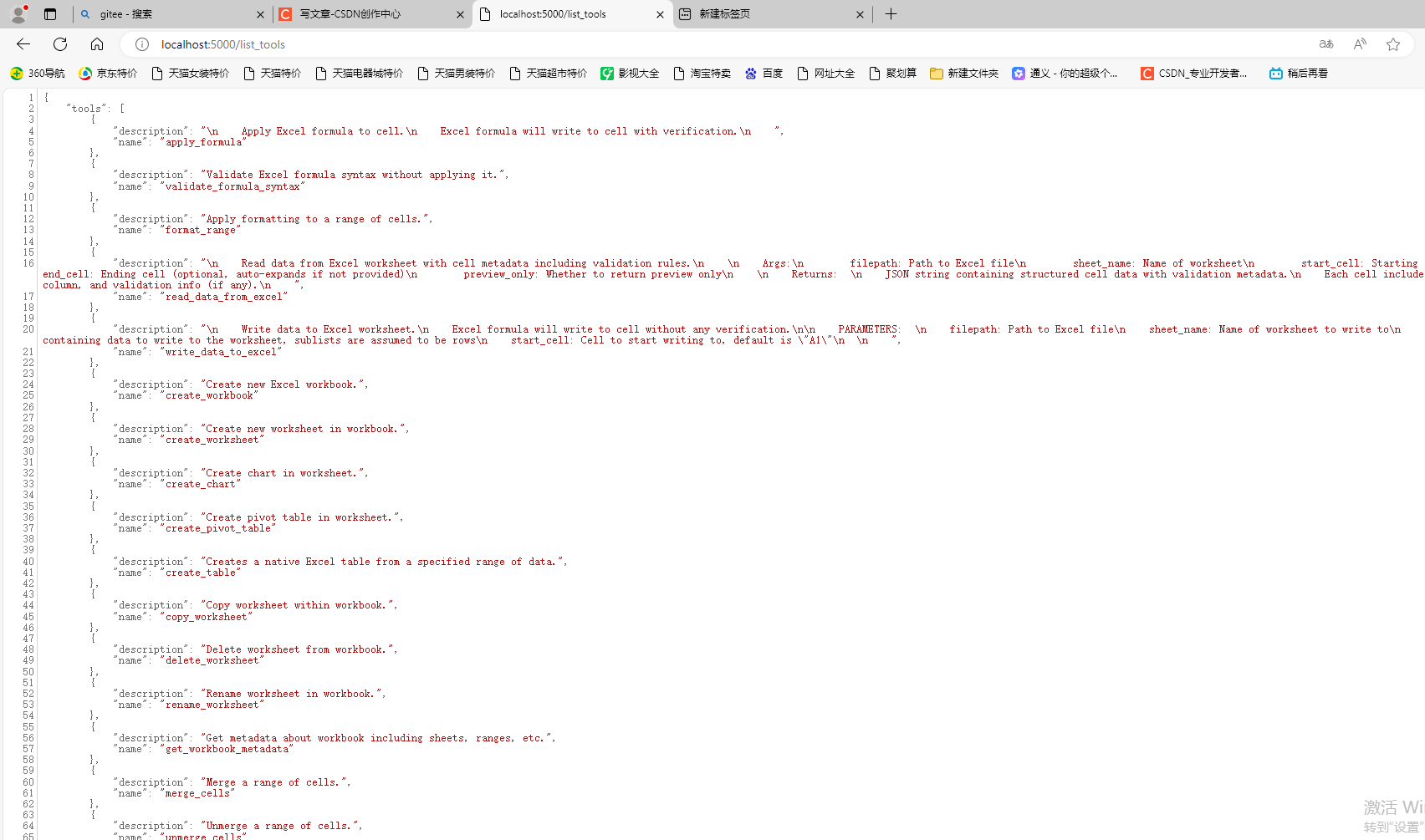python
复制代码
# e:\code\my_python_server\sse\sse_server.py
from mcp import ClientSession
from mcp.client.sse import sse_client
import asyncio
from flask import Flask, request, jsonify
app = Flask(__name__)
async def read_excel_data(filepath, sheet_name=None):
"""通过 SSE 连接到 MCP 服务器并读取 Excel 数据"""
url = "http://localhost:8017/sse"
async with sse_client(url) as (read, write):
async with ClientSession(read, write) as session:
# 初始化连接
await session.initialize()
print("已连接到 MCP 服务器")
# 处理 sheet_name 参数
# 如果没有提供 sheet_name,则使用默认值 "Sheet1"
if sheet_name is None:
sheet_name = "Sheet1"
# 读取数据
result = await session.call_tool(
"read_data_from_excel",
arguments={
"filepath": filepath,
"sheet_name": sheet_name,
"start_cell": "A1",
"preview_only": True
}
)
print("已读取数据:", result)
# 将结果转换为可序列化的格式
return convert_result_to_serializable(result)
def convert_result_to_serializable(result):
"""将 CallToolResult 转换为可序列化的字典格式,并避免重复内容"""
if hasattr(result, '__dict__'):
# 如果结果对象有 __dict__ 属性,尝试转换其属性
serializable = {}
for key, value in result.__dict__.items():
if isinstance(value, (str, int, float, bool, type(None))):
serializable[key] = value
elif isinstance(value, (list, tuple)):
serializable[key] = [convert_result_to_serializable(item) if hasattr(item, '__dict__') else item for item in value]
elif isinstance(value, dict):
serializable[key] = {k: convert_result_to_serializable(v) if hasattr(v, '__dict__') else v for k, v in value.items()}
else:
# 对于其他对象,转换为字符串表示
serializable[key] = str(value)
# 特殊处理 content 和 structuredContent 字段,避免重复数据
if 'content' in serializable and 'structuredContent' in serializable:
# 如果 structuredContent 中的 result 与 content 的 text 相同,则移除其中一个
if (isinstance(serializable['content'], list) and
len(serializable['content']) > 0 and
isinstance(serializable['content'][0], dict) and
'text' in serializable['content'][0] and
isinstance(serializable['structuredContent'], dict) and
'result' in serializable['structuredContent']):
# 比较内容是否重复
if serializable['content'][0]['text'] == serializable['structuredContent']['result']:
# 移除重复的 structuredContent,只保留 content
del serializable['structuredContent']
return serializable
else:
return str(result)
async def list_available_tools():
"""通过 SSE 连接到 MCP 服务器并列出所有可用工具"""
url = "http://localhost:8017/sse"
async with sse_client(url) as (read, write):
async with ClientSession(read, write) as session:
# 初始化连接
await session.initialize()
print("已连接到 MCP 服务器")
# 列出所有可用工具
tools = await session.list_tools()
return [{"name": tool.name, "description": tool.description} for tool in tools.tools]
@app.route('/read_excel', methods=['GET'])
def read_excel_endpoint():
"""Flask 路由,接受 filepath 和可选的 sheet_name 参数并返回读取结果"""
filepath = request.args.get('filepath')
sheet_name = request.args.get('sheet_name')
if not filepath:
return jsonify({"error": "缺少 filepath 参数"}), 400
try:
# 在异步环境中运行
result = asyncio.run(read_excel_data(filepath, sheet_name))
return jsonify({"result": result})
except Exception as e:
return jsonify({"error": str(e)}), 500
@app.route('/list_tools', methods=['GET'])
def list_tools_endpoint():
"""Flask 路由,列出所有可用的 MCP 工具"""
try:
# 在异步环境中运行
tools = asyncio.run(list_available_tools())
return jsonify({"tools": tools})
except Exception as e:
return jsonify({"error": str(e)}), 500
if __name__ == '__main__':
app.run(host='0.0.0.0', port=5000, debug=True)
